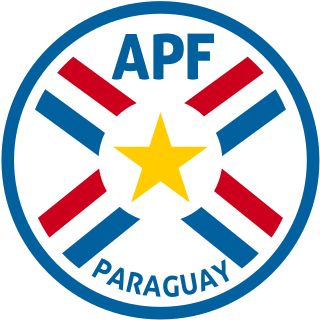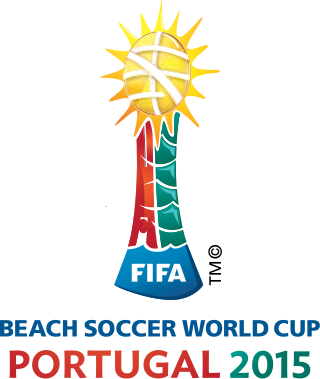
The 1930 FIFA World Cup was the inaugural FIFA World Cup, the world championship for men's national football teams. It took place in Uruguay from 13 to 30 July 1930. FIFA, football's international governing body, selected Uruguay as the host nation, as the country would be celebrating the centenary of its first constitution and the Uruguay national football team had successfully retained their football title at the 1928 Summer Olympics. All matches were played in the Uruguayan capital, Montevideo, the majority at the Estadio Centenario, which was built for the tournament.

The Brazil national football team, nicknamed Seleção Canarinha, represents Brazil in men's international football and is administered by the Brazilian Football Confederation (CBF), the governing body for football in Brazil. They have been a member of FIFA since 1923 and a member of CONMEBOL since 1916.

The Colombia national football team represents Colombia in men's international football and is managed by the Colombian Football Federation, the governing body for football in Colombia. They are a member of CONMEBOL and are currently ranked 17th in the FIFA World Rankings. The team are nicknamed Los Cafeteros due to the coffee production in their country. Notably, the national team has been a symbol of nationalism, pride, and passion for many Colombians worldwide. Colombia is known for having a passionate fan base, and the team's dances during goal celebrations have been symbolic.

The Paraguay national football team represents Paraguay in men's international football competitions, and are controlled by the Paraguayan Football Association. Paraguay is a member of CONMEBOL. Their nickname is the Albirroja, or red and white. The Albirroja has qualified for eight FIFA World Cup competitions, with their best performance coming in 2010 when they reached the quarter-finals. A regular participant at the Copa América, Paraguay have been crowned champions of the competition on two occasions. Paraguay's highest FIFA World Rankings was 8th and their lowest was 103. Paraguay was awarded second place with Best Move of the Year in 1996 for their rise in the FIFA Rankings.
The FIFA World Cup was first held in 1930, when FIFA, the world's football governing body, decided to stage an international men's football tournament under the era of FIFA president Jules Rimet who put this idea into place. The inaugural edition, held in 1930, was contested as a final tournament of only thirteen teams invited by the organization. Since then, the World Cup has experienced successive expansions and format remodeling, with its current 48-team final tournament preceded by a two-year qualifying process, involving over 200 teams from around the world.

The 2006 FIFA Beach Soccer World Cup was the second edition of the FIFA Beach Soccer World Cup, governed by FIFA. Overall, this was the 12th edition of a world cup in beach soccer since the establishment of the Beach Soccer World Championships which ran from 1995–2004 but was not governed by FIFA. It took place in Rio de Janeiro, Brazil, from 2–12 November 2006.

The Australia national under-20 soccer team, known colloquially as the Young Socceroos, represents Australia in international under-20 soccer. The team is controlled by the governing body for soccer in Australia, Football Australia (FA), which is currently a member of the Asian Football Confederation (AFC) and the regional ASEAN Football Federation (AFF) since leaving the Oceania Football Confederation (OFC) in 2006. The team's official nickname is the Young Socceroos.

The Mexico national under-17 football team is one of the youth teams that represents Mexico in football at the under-17 level, and is controlled by the Mexican Football Federation. The team has reached the final of the FIFA U-17 World Cup four times, and is a two-time winner, being crowned champions in 2005 and 2011.

The 2009 FIFA Beach Soccer World Cup was the fifth edition of the FIFA Beach Soccer World Cup, governed by FIFA. Overall, this was the 15th edition of a world cup in beach soccer since the establishment of the Beach Soccer World Championships which ran from 1995–2004 but was not governed by FIFA. It took place in Dubai, the United Arab Emirates between 16 November and 22 November 2009. It was the second tournament to take place outside Brazil, first to be played in Asia, and the last tournament to take place on an annual basis.
The 2008 FIFA Beach Soccer World Cup Final took place between Italy and Brazil on 27 July 2008 at the Plage du Prado. Brazil were the winners, winning by five goals to three. Brazil have beaten fifteen other teams to be crowned FIFA Beach Soccer World Cup 2008 Winners. It was Brazil's third title in a row.
The Brazil Olympic football team represents Brazil in international football competitions during Olympic Games and Pan American Games. The selection is limited to players under the age of 23, except three overage players. The team is controlled by the Brazilian Football Confederation (CBF). Brazil U23 is one of the most successful teams in the Olympic football tournament, having won it twice.
Association football is the most popular sport in nearly every African country, and thirteen members of the Confederation of African Football (CAF) have competed at the sport's biggest event – the men's FIFA World Cup. The highest ranked result in the World Cup for an African team is 4th place in the 2022 FIFA World Cup by Morocco, who was also the first African/Arab country to qualify for the semifinals in a World Cup, after beating Portugal 1-0 in the Quarterfinals.
The 2007 FIFA Beach Soccer World Cup Final took place between Mexico and Brazil on 11 November 2007 at Copacabana Beach, Rio de Janeiro. Brazil were the winners, winning by eight goals to two. Brazil have beaten fifteen other teams to be crowned 2007 FIFA Beach Soccer World Cup Winners. It was Brazil's second title in a row.
The 2011 FIFA Beach Soccer World Cup Final was the last match of the 2011 FIFA Beach Soccer World Cup which took place on September 11, 2011 at the Stadio del Mare, in the Italian city of Ravenna. The final took place between Russia, who were taking place in their first ever final and defending champions Brazil, who were playing in their fourteenth final, aiming to win their fourteenth title. The result of the match saw Russia claim the FIFA Beach Soccer World Cup crown, winning their first ever title and becoming only the third team other than Brazil to win the World Cup.

The 2015 FIFA Beach Soccer World Cup was the eighth edition of the FIFA Beach Soccer World Cup, the premier international beach soccer competition for men's national teams, which has been organized by FIFA since 2005. Overall, this was the 18th edition of a world cup in beach soccer since the establishment of the Beach Soccer World Championships which ran from 1995 to 2004 but was not governed by FIFA. It was also the third edition to take place under the biennial system introduced in 2009.

Nine of ten members of the South American Football Confederation (CONMEBOL) have competed in the men's FIFA World Cup finals. National association football teams from CONMEBOL have won the tournament ten times, including Brazil's record five championships. CONMEBOL countries have hosted the finals five times.

The 2017 FIFA Beach Soccer World Cup was the ninth edition of the FIFA Beach Soccer World Cup, the premier international beach soccer championship contested by the men's national teams of the member associations of FIFA. Overall, this was the 19th edition of a world cup in beach soccer since the establishment of the Beach Soccer World Championships which ran from 1995 to 2004 but was not governed by FIFA. This was the fourth tournament to take place under the biennial basis; the World Cup now takes place once every two years, after taking place on a yearly basis until 2009.
The history of the Brazil national football team began with the team's first international match in 1914. Brazil played in the first FIFA World Cup in 1930. The Brazil national team has been successful throughout its history, winning the FIFA World Cup five times since 1958.
Ishaq Al-Mas Al-Qassmi is an Omani footballer and beach soccer player who plays for Omani club Ahli Sidab Club.

The 2017 FIFA Beach Soccer World Cup Final was the last match of the 2017 FIFA Beach Soccer World Cup which took place on May 7, 2017 at the National Beach Soccer Arena in Nassau, the Bahamas. The final was contested between Tahiti, who had previously competed in one World Cup final, the last World Cup final in 2015 which they lost to Portugal, and Brazil, who were back into a World Cup final after their last appearance six years ago in 2011, their sixth FIFA Beach Soccer World Cup final and their 15th overall when taking into account the pre-FIFA era Beach Soccer World Championships, beating the defending champions Portugal on their way to this year's final.











